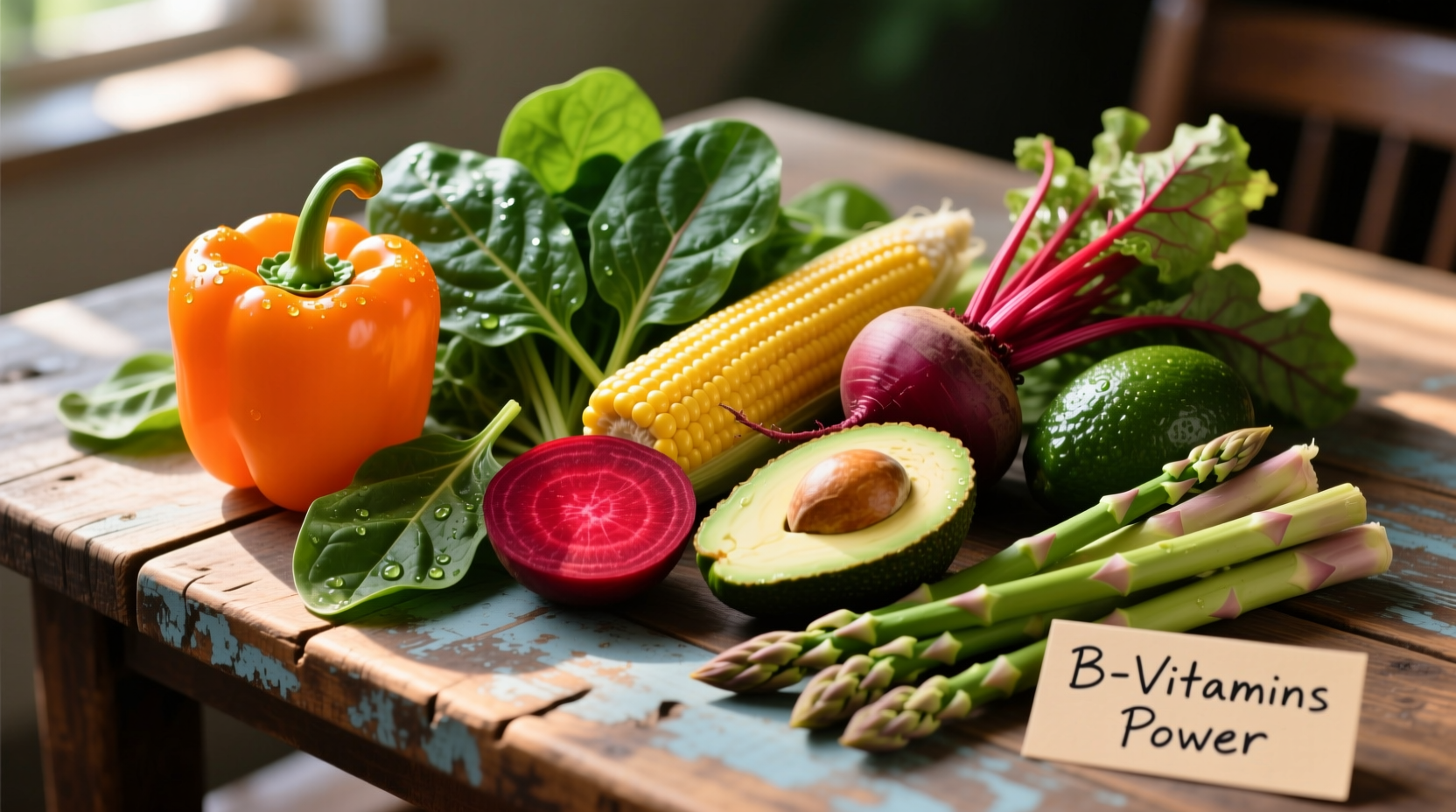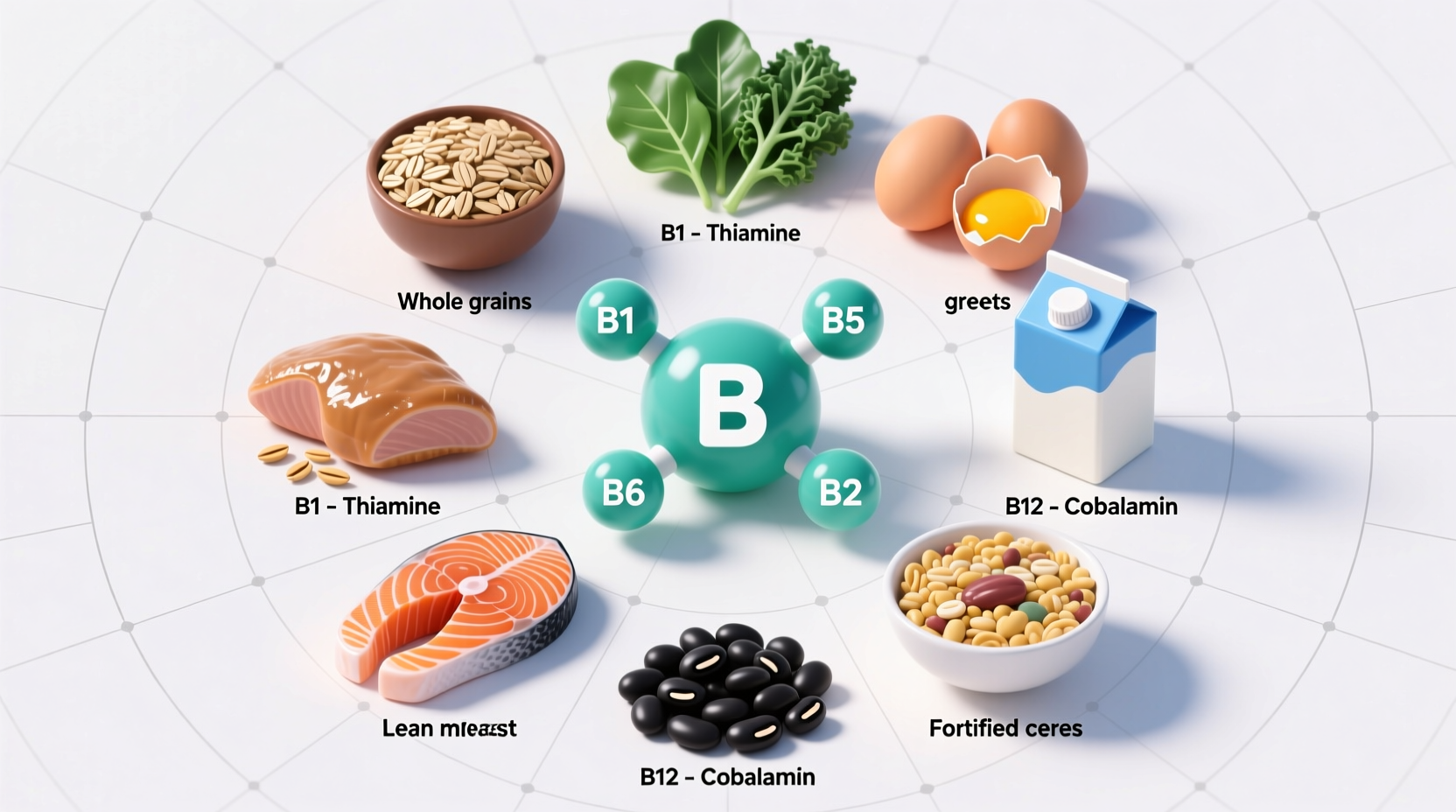Understanding the Vitamin B Complex
When people ask what foods are in vitamin B, they're typically seeking natural dietary sources of these crucial nutrients. Vitamin B actually refers to eight distinct vitamins that work together but serve different functions in your body. These water-soluble vitamins play vital roles in cell metabolism, energy production, brain function, and red blood cell formation.
Unlike fat-soluble vitamins, your body doesn't store B vitamins long-term, making regular dietary intake essential. While supplements exist, getting B vitamins from whole foods provides additional nutrients and better absorption. The National Institutes of Health emphasizes that food sources remain the preferred method for obtaining these nutrients for most healthy individuals.

Vitamin B Food Sources Breakdown
Each B vitamin has specific dietary sources. Understanding which foods contain which B vitamins helps you create balanced meals that meet your nutritional needs.
| Vitamin | Top Food Sources | Daily Value Per Serving |
|---|---|---|
| B1 (Thiamine) | Sunflower seeds, pork, black beans | 1/4 cup sunflower seeds: 69% |
| B2 (Riboflavin) | Eggs, organ meats, almonds | 1 large egg: 15% |
| B3 (Niacin) | Tuna, chicken, peanuts | 3 oz tuna: 46% |
| B5 (Pantothenic Acid) | Mushrooms, avocado, sweet potatoes | 1 cup mushrooms: 49% |
| B6 (Pyridoxine) | Chickpeas, salmon, potatoes | 1 cup chickpeas: 55% |
| B7 (Biotin) | Egg yolks, liver, yeast | 1 large egg yolk: 33% |
| B9 (Folate) | Leafy greens, lentils, asparagus | 1 cup cooked lentils: 90% |
| B12 (Cobalamin) | Clams, liver, fortified nutritional yeast | 3 oz clams: 1,400% |
Complete Vitamin B Food Guide
Animal-Based Powerhouses
Organ meats represent some of the most concentrated sources of B vitamins. According to USDA FoodData Central, a 3-ounce serving of beef liver provides more than 100% of the daily value for seven of the eight B vitamins. For those who prefer milder options, eggs offer a complete B vitamin profile with excellent bioavailability.
Fatty fish like salmon and trout provide significant amounts of B3, B6, and B12. The National Academy of Medicine notes that marine sources offer B12 in its most bioavailable form, making them particularly valuable for maintaining healthy nerve function.
Plant-Based Sources for Vegetarians and Vegans
While B12 is notoriously difficult to obtain from plant sources, several options provide other B vitamins. Nutritional yeast has become a popular vegan source of B vitamins, particularly when fortified. Just 2 tablespoons typically provide 100% of your daily B12 needs along with substantial amounts of other B vitamins.
Legumes stand out as excellent plant-based sources of multiple B vitamins. Lentils and chickpeas deliver impressive amounts of folate (B9) and B6. The Harvard T.H. Chan School of Public Health highlights that regularly consuming legumes can significantly improve overall B vitamin status in plant-based diets.
Fortified Foods and When They're Necessary
Certain populations may benefit from fortified foods. The NIH Office of Dietary Supplements recommends fortified cereals and plant milks for vegetarians and vegans concerned about B12 intake. For older adults, fortified foods become increasingly important as stomach acid production decreases with age, reducing natural B12 absorption from food sources.
Practical Vitamin B Meal Planning
Creating meals that maximize B vitamin intake doesn't require complicated recipes. Simple combinations work best:
- Breakfast: Scrambled eggs with spinach and mushrooms (B2, B5, B6, B9)
- Lunch: Lentil soup with whole grain bread (B1, B3, B6, B9)
- Dinner: Baked salmon with roasted asparagus and sweet potato (B3, B5, B6, B9)
For optimal absorption, pair vitamin B-rich foods with healthy fats. The Academy of Nutrition and Dietetics explains that while B vitamins themselves are water-soluble, consuming them with some fat improves overall nutrient absorption from the meal.
Special Considerations for Vitamin B Intake
Certain life stages and health conditions increase B vitamin requirements. Pregnant women need significantly more folate (B9) to prevent neural tube defects. The Centers for Disease Control and Prevention reports that adequate folate intake before conception and during early pregnancy reduces neural tube defect risk by up to 70%.
Older adults often develop reduced stomach acid production, which impairs B12 absorption from food. The National Institute on Aging recommends that adults over 50 get most of their B12 from fortified foods or supplements, as these forms don't require stomach acid for absorption.
Food preparation matters too. Boiling vegetables can leach water-soluble B vitamins into cooking water. The Journal of Food Science notes that steaming or microwaving preserves more B vitamins than boiling. When cooking grains, avoid excessive rinsing as this removes B vitamins added during fortification.











 浙公网安备
33010002000092号
浙公网安备
33010002000092号 浙B2-20120091-4
浙B2-20120091-4